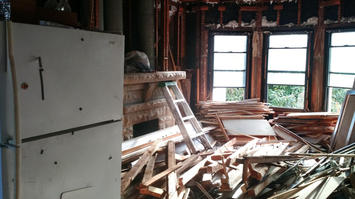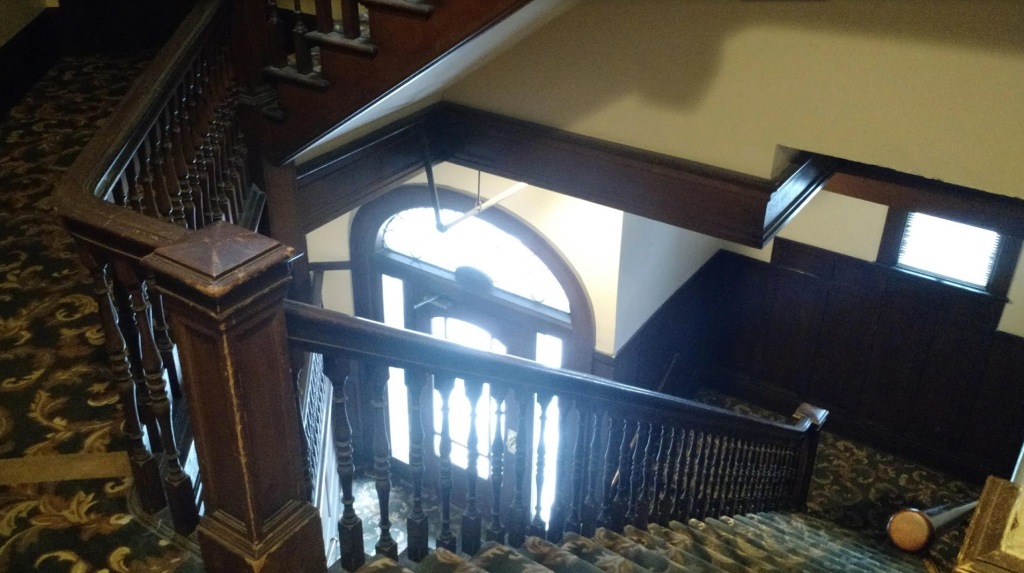
Among my many friends here in San Francisco is a guy who works in the field of affordable housing. In the parlance of the profession he identifies and empowers stakeholders to work synergistically to blah, blah, blah. He’s basically the lubricant in an immensely complex collection of processes involving public and private actors who are all at odds with each other. One of his recent “successes” was a dozen below market apartments for seniors in a third tier suburb of a second tier city in another state that required many years and a dozen separate funding sources. If his goal is to help create meaningful amounts of genuinely affordable housing he doesn’t think the existing culture allows that to happen. He’s contemplating a career change.







As it happens, he recently got a notice from the company that manages and partly owns the building he lives in. The property is being sold. He had observed over the last couple of years that as old tenants moved out new ones weren’t moving in. The management was letting the place slowly empty out by attrition. In a location with spectacularly high demand and shockingly high rents the most likely explanation was confirmed by the notice. The building is more valuable if it’s delivered in a semi vacant condition rather than burdened with tenants.
Prado Group - Positive Evolution from Prado Group on Vimeo.
The immediate neighborhood is peppered with projects that were built by this same company, most of which were constructed on old parking lots, used car dealerships, and defunct gas stations. I’m in favor of these projects and believe they’ve added to the housing stock and have been a positive contribution to the city. But they’re crazy expensive. There’s simply no way to build meaningful amounts of affordable housing in this location at this time. Land is too expensive. The ten plus year permit approval process is mind-numbingly difficult and expensive. The endless lawsuits and litigation are too expensive. The cost of labor and construction materials are too expensive. And none of that is the fault of the developers.
My friend’s response has been measured and pragmatic. He understands the law and how these things tend to play out. Nothing will be happening right away. He’s speaking with the other tenants, gathering information about the trajectory of the property, and making sure he has a Plan B if he should need to move at some point. He’s also looking for opportunities to benefit from the transition, which is a distinct possibility. The easiest way to get existing tenants out is to pay them to leave. There’s also a general feeling in the city that real estate is in a bubble and when it pops things will calm down.


Cut to another friend a few blocks away. She had been living in a massive flat with four large bedrooms, two baths, formal dining room, two fireplaces, an entry hall larger than my entire apartment, and a charming back garden which she lovingly tended. She’s in her sixties and enjoyed the wonders of rent control for many years. Then her landlady died, the building sold in a matter of days, and the inevitable eviction notice arrived.
For years I had been asking her what she was going to do when (not if) she had to leave. What was her Plan B? She refused to acknowledge the reality of her situation. There was no way she would ever find this kind of property at that price in this location ever again. As a senior she was a protected class of tenant. She had rights. There was the Legal Aid Society. The Tenants Union. She did exactly nothing.



Nearly a year later the day finally came when representatives of the new owner arrived with building contractors and a renovation expert to size up the space. I was there to help my friend pack her belongings. What goes to charity? What is to be sold? What is precious and must be kept? She couldn’t function and began to sob. Things went downhill from there. I wasn’t especially kind to her in the end. She needed to focus on the pragmatic task at hand, but she wasn’t able to deal with external reality. I lost patience. I left after she snapped at me once too often. We haven’t spoken since. Shrug.






The building is well on its way to being transformed. I have no doubt the place will be amazing when it’s finished – for whoever can afford it. My friend is gone. Gone from the building. Gone from San Francisco. Gone from California. Gone. Last I heard she was renting a bedroom from an old friend in Maine. I hope she’s happy there.
We don’t have a choice about what’s happening in the economy. And we don’t have a choice about the political landscape. But we do have the ability to respond to our situations in ways that deliver the best possible results – even if the “best” options aren’t as good as what we’re leaving behind.
This piece first appeared on Granola Shotgun.
John Sanphillippo lives in San Francisco and blogs about urbanism, adaptation, and resilience at granolashotgun.com. He's a member of the Congress for New Urbanism, films videos for faircompanies.com, and is a regular contributor to Strongtowns.org. He earns his living by buying, renovating, and renting undervalued properties in places that have good long term prospects. He is a graduate of Rutgers University.












